Acclaim for ISABEL FONSECAs
Bury Me Standing
Illuminating. Ms. Fonseca is as impressive for intrepid reporting as for analytical scholarship. A captivating portrait.
The New York Times
Isabel Fonsecas harrowing portrait of the Gypsies, a people on the brink, is a remarkable achievement. With its sure grasp of a bewildering, scattered, complex history, her book renders the Gypsies experience and search for identity with profound sympathy and brilliant insight. A gripping, original work.
Edward W. Said
Bury Me Standing [is] the superb and unique documentation and history, the vivid and scholarly, the passionate and disciplined, the excruciatingly fair account of a people close to me. The Gypsies and I have waited for this book.
Yehudi Menuhin
Layered with lore, history, sharp social analysis and amazingly candid and thoughtful impressions, Bury Me Standing is a rich narrative account of Fonsecas travels through a number of Romany communities at a time when the Gypsy people have begun to unravel their past and take charge of their future.
The Nation
Many books have been written about post-communist Europe, but none displays such selfless commitment to its subject as Bury Me Standing.
Wall Street Journal
Bury Me Standing admirably musters difficult material into a story of vividly sketched individuals and enlightening ideas, told with fellow feeling and clear-eyed wit.
The New York Times Book Review
A lovingly researched, finely written book. Bury Me Standing blends a satisfying combination of demographic, ethnographic, political and historical material with the impressions and anecdotes of personal report.
Washington Times
A hugely valuable contribution to the knowledge of what must be the most maligned, misunderstood, despised, secretive, survivalistic, colorful, fascinating group of people in the world. A compelling history.
Post & Courier (North Carolina)
Bury Me Standing is really an anthropological testament, far more intelligent and less self-serving than the average contemporary travelogue. The book has a plethora of detail, scope and an irresistible humanity at its heart.
Observer (London)
One can surely say that Isabel Fonseca has represented the Gypsiesfaithfully, engagingly, and with a profound understanding of their life as a nation. Bury Me Standing [is] a genuinely important work for which we should be grateful.
Village Voice
Bury Me Standing is a wonderful read. In rich, clear language, and powerful, often surprising images, Fonseca illuminates a world few Americans know anything about. And she does it in a book that bristles not just with images of people and places, but with ideas, questions and connections.
The Boston Book Review
Bury Me Standing is a genuine history of Gypsy culture, building on the renaissance of Gypsy scholarship and given life by the authors repeated journeys into the heartland of Gypsy culture in Eastern Europe. A real achievement: compassionate, amusing, sardonic and highly intelligent.
Michael Ignatieff, Independent on Sunday (London)
From start to finish, Bury Me Standing is an important book, as well as a great piece of literature.
Jerusalem Post
Fonsecas research is always as absorbing as her personal observations are acute. The past and present of Eastern Europe have been inscribed into the very bones of its Gypsies, and only Fonseca has known how to decode these passionate runes.
Edmund White
Compassionate and daunting. Bury Me Standing is a beautifully written, thoughtful and compelling book fueled by a solid moral vision that helps us comprehend a misunderstood people struggling on the wastelands of Eastern Europe.
Boston Sunday Globe
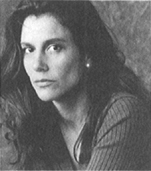
ISABEL FONSECA
Bury Me Standing
Isabel Fonseca was educated at Columbia University and Oxford University. She was an assistant editor at the Times Literary Supplement and has written for a wide range of publications, including The Independent, Vogue, The Nation, and The Wall Street Journal. She lives in London.
 FIRST VINTAGE DEPARTURES EDITION, OCTOBER 1996
FIRST VINTAGE DEPARTURES EDITION, OCTOBER 1996
Copyright 1995 by Isabel Fonseca
Maps copyright 1995 by David Lindroth, Inc.
All rights reserved under International and Pan-American Copyright Conventions. Published in the United States by Vintage Books, a division of Random House, Inc., New York, and simultaneously in Canada by Random House of Canada Limited, Toronto. Originally published in hardcover by Alfred A. Knopf, Inc., New York, in 1995.
The Library of Congress has cataloged the Knopf edition as follows:
Fonseca, Isabel.
Bury me standing : the Gypsies and their journey / by Isabel Fonseca.1st ed.
p. cm.
eISBN: 978-0-307-76104-0
1. GypsiesHistory. I. Title
DX115.F66 1995
909.0491497dC20
95-14272
Author photograph copyright Marion Ettlinger
Random House Web address: http://www.randomhouse.com/
v3.1
To my brother Bruno
19581994
ACKNOWLEDGMENTS
This book is the result of many visits, long and short, to East Central Europeto Albania, Bulgaria, the former Czechoslovakia, Germany, Moldova, Poland, Romania, and the former Yugoslaviabetween 1991 and 1995. I would like to thank (more or less alphabetically) Igor Antip, David Binder, Holly Cartner, Marcel Courtiade, the Duka family, Rajko Djuric, Moris Farhi, Edmund Fawcett, Angus Fraser, Andreas Freudenberg, Nicolae Gheorghe, Gabrielle Glaser, Ian Hancock, Herbert Heuss, Milena Hbschmannov, Elena Marushiakova and Vesselin Popov, Pete Mercer, Luminitsa Mihai, Sybil Milton, Andrzej Mirga, David Mulcahy, Ljumnja Osmani, Carol Silverman, Jeremy Sutton-Hibbert, Martine Tassy, Corin Trandofir, Rachel Tritt, Ted Zang, and Ina Zoon. Larry Watts and Livia Plaks of the Project on Ethnic Relations were also helpful.
I am especially indebted to Donald Kenrick, co-author of the pioneering study The Destiny of Europes Gypsies. Over four years he patiently responded to my ideas and impressions and finally he read the whole book in manuscript. And I am grateful to Mick Imlah, Richard Cornuelle, John Ryle, Martin Amis, and Michael Glazebrook, who also read and improved this book in typescript.
In the text I have changed some names. I have not always given surnames. Often these were not volunteered for various reasons.
I changed peoples names if they asked not to be identified and also if I thought that they didnt really understand that their stories might be read by strangers. I never concealed my notes, or the likelihood that I would reproduce and publish them, but this is one of the dilemmas of writing about a largely illiterate people: What could such declarations of intent mean to many of the illiterate, and isolated, Roma I met? I apologize to anyone mentioned by name who would have preferred anonymity.



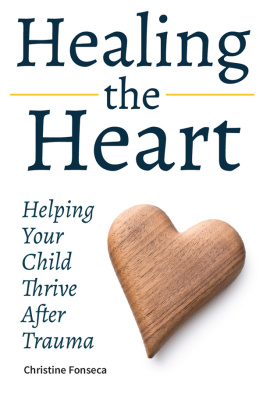
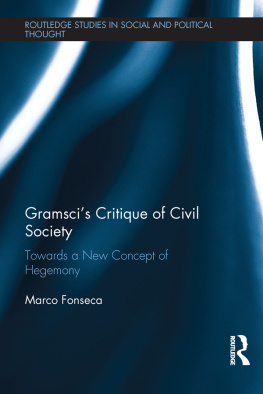
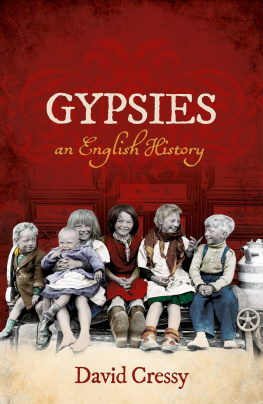
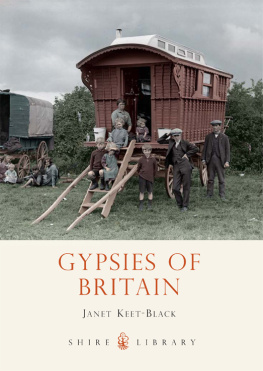
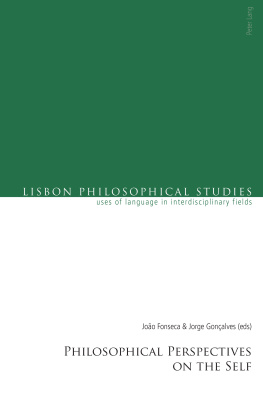
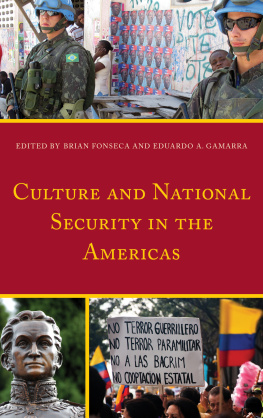
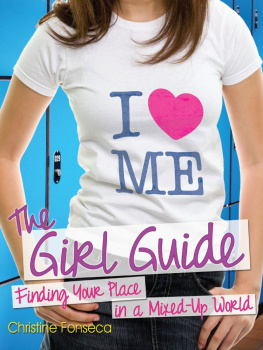

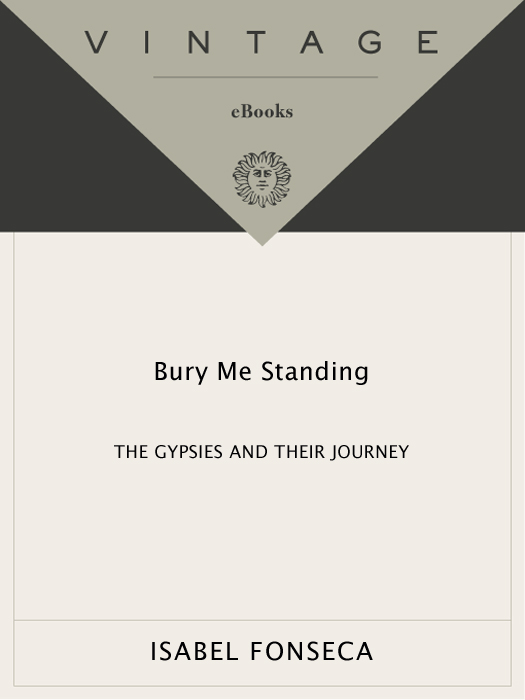

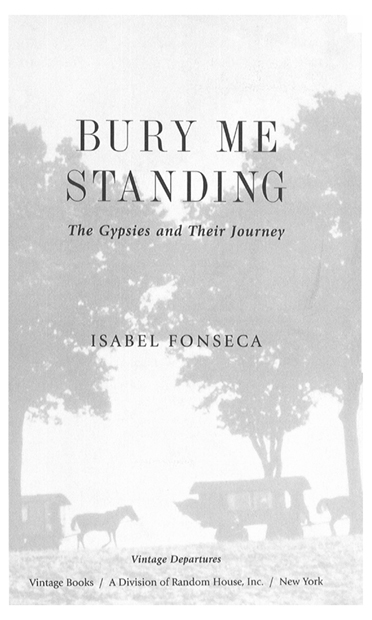
 FIRST VINTAGE DEPARTURES EDITION, OCTOBER 1996
FIRST VINTAGE DEPARTURES EDITION, OCTOBER 1996